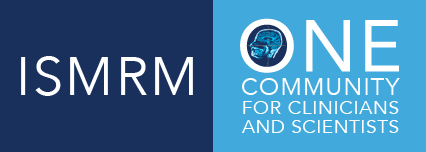 Shaping the Future: Survey Insights & Exciting New Abstract Initiative
Shaping the Future: Survey Insights & Exciting New Abstract Initiative
In this second blog, I would like to discuss two topics: the post-conference survey results and a new abstract initiative. I’ll start with the survey, and then hand it over to my guest writer, Dr. Laura Bell, for the second part.
Survey Results
During the summer break, I reviewed the post-conference attendee survey, which is still open and available if you have not already submitted your feedback. There were about 400 respondents, and I want to extend my gratitude to everyone who participated! It took me a week to go through all the feedback, which was incredibly valuable. I’d like to begin by sharing my top five favorite comments, all of which have been approved for sharing:
- “It is a MUST for those in the field of MRI.”
- “I put real effort in convincing colleagues to participate!”
- “This was an awesome meeting filled with inspiring presentations, insightful works, bubbling networking, and opportunities.”
- “As a clinician radiologist, ISMRM is the best meeting to foresee technologies that we want to push into our future clinical practice.”
- “I always leave the week full of exciting new ideas, inspiring new connections, and 1000 times more enthusiasm for continuing to pursue research in the field of MRI.”
These comments are truly encouraging.
Now, I must address some of the negative feedback. Various opinions were expressed, but I believe they can be distilled into two main categories: the quantity of content and the poster format.
Several respondents mentioned that there is too much content at the meeting. Some suggested reducing the number of parallel sessions by half. While I partially agree, there are downsides to this approach. Reducing the parallel sessions to half will lower the acceptance rate. So, as our first step towards size reduction, we will slightly reduce the number of oral sessions.
The second issue concerns the posters. Preferences are divided between traditional paper posters (PP) and digital posters (DP). One of the most radical suggestions was to eliminate DP entirely and “make it all paper again.” If we make it all paper, this would also lower the acceptance rate, as capacity of the venue is limited. So, what we could do would be to further brush up the DP so that they will function similarly to the PP. We will maintain the current format of DP but will introduce an option to submit PDF.
As you can see, we are continually striving to improve the meeting based on your feedback. Although the process may seem very slow, I’m sure that you do see incremental changes over the years. So, thank you again to everyone who responded.
Speaking of changes, we do have one exciting new change this year. So, from here, Laura will take over!
Thanks for inviting me here, Kei! As the current vice-chair of the Reproducibility Research Study Group (RRSG) and an AMPC member, I’m excited to share a new initiative that is rolling out this year: a new submission type called “Registered Abstracts.” Briefly, a registered abstract poses a hypothesis and a study design to validate it. If reviewers accept the registered abstract, the results will be shared (and it is a requirement!) at the annual meeting regardless of the outcome. This allows for transparency in our research, potentially decreases false positives presented, demonstrates the value of negative results, and supports a key element of reproducibility.
How did we get here? Based on the success of the ISMRM’s Repeat-It-with-Me Challenge, Drs. Laura Bortolotti, Sophie Schauman, and Maria Eugenia Caligiuri have been enthusiastically discussing this concept with the AMPC. They have clearly communicated their ideas and the importance of registered abstracts to improve the impact of science presented at our annual meetings.
What can you expect? At the time of submission, you will choose to submit a “Registered Abstract,” which will take you to the submission process for this abstract type. These registered abstracts will differ slightly in format from a conventional abstract and will be reviewed with new, equally strict guidelines. Stay tuned for many more details to come shortly. Now we’re asking for your participation as a community to start formulating your ideas–show us what you’ve got, then show us what you get!
This is just the beginning stages of planning, but we are excited about the ongoing improvements to the annual meeting based on your feedback, as well as the introduction of innovative initiatives like the Registered Abstracts. These efforts aim to create a more engaging, inclusive, and impactful experience for all attendees. We look forward to seeing how these changes enhance both the meeting and the scientific discussions that emerge.
Kei Yamada, M.D., Ph.D.
2025 Annual Meeting Program Chair





I appreciate the thought put into make this a successful meeting by so many metrics. As a long time member, I do agree that the digital poster format is much less effective in conveying the information during the poster session. However, the people who just made a digital poster on one slide (like a regular paper poster) were the best by far. Many people could come and read it and catch up to the conversation at hand, and additional detail slides could be viewed when needed. Perhaps this is a good compromise? Also, the listing of the posters at the end of each row was very helpful!
Comments are closed.